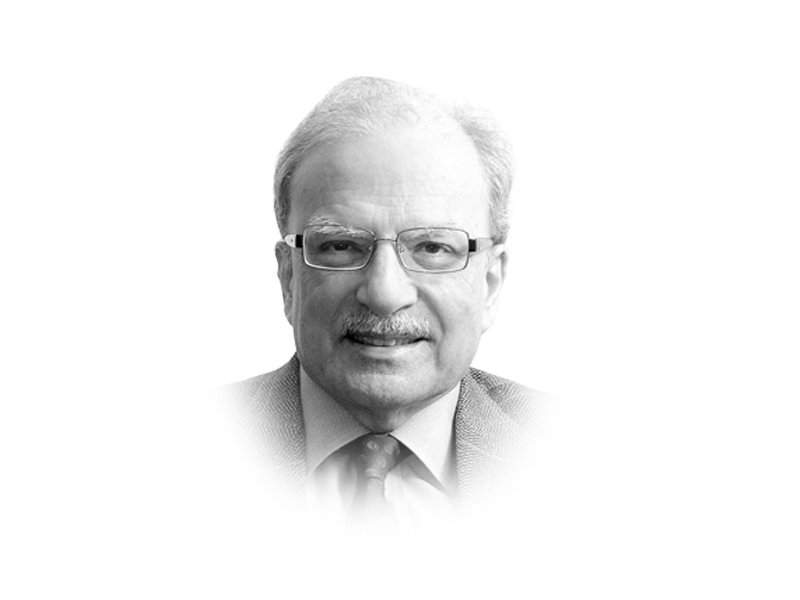
Partly as a consequence of what Washington is doing in the Middle East, tensions have risen among Muslim nations. This has happened for several reasons. There is a centuries-old animosity between the Kingdom of Saudi Arabia and the Islamic Republic of Iran. Pakistan, after Iran, is the second- largest Shiite nation in the world. The way Riyadh looks at Iran and the Shiite sect has infected Pakistan. There have been repeated attacks on the Shiite community in Pakistan by extremist Sunni groups in Pakistan. These have taken hundreds of lives.
In the politically-underdeveloped world of Islam, the Saudis and the Iranians follow very different models of governance. Riyadh is a monarchy in which all power is wielded by the King and the princes who are close to him. At this time, the most powerful man in the Kingdom is not the King but his son, the Crown Prince. Muhammad bin Salman, or MBS, as he is generally referred to, is the sole ruler, answerable to no one but himself. Iran, on the other hand, is a religious republic in which the clergy governs, following fairly well-defined rules. There is no settled system of governance in the Muslim world. The role of religion in Islamic politics remains undefined. Pakistan is one of the few countries in the Muslim world that has succeeded in keeping religion apart from governance. It is engaged in the process of establishing Western-style liberalism as the governing philosophy.
While this system was tried several times before, the country began to settle down into something that was workable after the last of the four military rulers who governed the country for almost half of its life as an independent state retired in 2008. The elections held that year and those that followed it in 2013 and 2018 strengthened the system but it did not get fully developed. What held the country back was the dominant role played by families in governing two of the largest political parties, the Pakistan Muslim League-Nawaz (PML-N), and the Pakistan Peoples Party, the PPP. The Sharif family controlled the former, the Bhutto family the latter. This changed in 2018. In the elections that year, the reins of power were handed to the Pakistan Tehreek-e-Insaf, the PTI, in which there is no family control or participation.
The future of the Palestinians in the geographic space controlled by the Jewish people is another source of concern for the Muslim world. After having vigorously promoted the rights of the Palestinians, the Saudi Crown Prince has begun to side with the Americans who have taken an aggressive pro-Israeli position. The Iranians, on the other hand, have openly sided with the Palestinians, arming Shiite militias in Lebanon, Iraq, and Syria who are prepared to do battle with the Israeli state on behalf of the Palestinians.
This then is the background against which we should look at the events of Thursday, June 20, when, by his own account, President Donald Trump called off the planned strike on Iran that would have taken at least 150 Iranian lives. He was warned by the right-wing pundits that such an adventure would result in his almost certain loss in the 2020 elections. He was told that a strike against Iran could easily spiral into a full-fledged war with victory not assured. The president struggled into the early evening, determined to take action and show resolve but then called off the war planes and missile launchers, and a major catastrophe was averted at least for the time being.
What had prompted a possible attack on the missile launch sites in Iran were two incidents in the Gulf of Oman which Washington believed that Tehran was involved. The first, an attack on some ships in the Gulf of Oman was denied by Iran; the second, the downing of an unmanned US drone over the Iranian airspace was accepted by the Iranian regime as a response to the invasion of its airspace. While the decision to call off the strike on Iran did not please such hawks in the administration as National Security Adviser John Bolton, many sensible people believed that a major catastrophe has been averted. Some thoughtful commentators felt that the incident had confirmed their worst fears.
Roger Cohen, a columnist for The New York Times, wrote a strong piece for his newspaper that did not comfort those who are nervous about the way Trump is governing and the direction in which he is taking the world. "This American slouching toward another Middle East war has been a disgrace, shot through with the twisting truth or outright lies," he wrote on June 21. "President Trump has been all over the place on Iran, which is what happens when you take a serious subject, treat it with farcical superficiality, believe braggadocio will sway a proud and ancient civilisation, approach foreign policy like a real estate deal, defer to advisers with Iran Derangement Syndrome, refuse to read any briefing papers and confuse the American national interest with the Saudi or Israeli," wrote Cohen.
The decision first to strike Iran's missile sites and then cancel the order ten minutes before the attack was to take place is a vivid example of an element in Donald Trump's style of handling world affairs. That is unpredictably. It is keeping the entire world on edge. It is an attribute he had sold during the campaign as a virtue but put into practice as was done in the Iran affair it could make things go horribly wrong. Another major conflict in the Middle East would seriously disturb the Pakistani neighbourhood.
1732503274-0/Untitled-design-(43)1732503274-0-405x300.webp)
1732501636-0/Untitled-design-(42)1732501636-0-165x106.webp)

1732498967-0/Outer-Banks--(1)1732498967-0-165x106.webp)
1732086766-0/BeFunky-collage-(74)1732086766-0-165x106.webp)







COMMENTS
Comments are moderated and generally will be posted if they are on-topic and not abusive.
For more information, please see our Comments FAQ